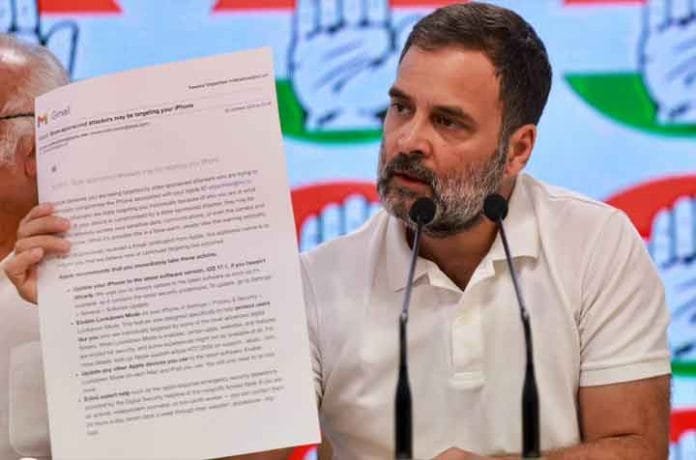INVC NEWS
Jagdalpur : A poignant example of the Congress party’s commitment to tribal rights was illustrated through the cancellation of an iron ore mining project by the industrial magnate, Adani — a close associate of PM Modi, as claimed by Gandhi. This action was portrayed as a triumph for tribal agency, rejecting an initiative that did not resonate with the aspirations of the local tribal communities.
BJP’s Stance on Tribal Rights: A Critical Examination
In the verdant expanses of Jagdalpur, a discourse of pivotal significance to the tribal communities of India unfolded. The meeting at Lalbagh ground, conducted by Rahul Gandhi, brought into sharp focus the pressing concerns of tribal rights and their tenuous grasp on the natural resources — water, forests, and land — which form the bedrock of their existence. The narrative woven by Gandhi underscored a perceived attempt by the ruling Bharatiya Janata Party (BJP) to disenfranchise these indigenous populations, stirring a profound dialogue on the ethos of governance and the tenets of social justice.
Tribals or ‘Forest Dwellers’: A Label with Implications
Rahul Gandhi articulated the semantic distinction between the terms ‘tribal’ and ‘forest dweller,’ a labeling strategy he ascribed to the BJP and the Rashtriya Swayamsevak Sangh (RSS). Emphasizing the depth of difference between these terms, Gandhi’s rhetoric suggested a deliberate effort to redefine tribal identity in a manner that could potentially dilute their ancestral claims to natural resources. The term ‘Vanvasi,’ introduced by these organizations, was critiqued as a subtle tool of political marginalization.
Inequality Under Scrutiny: The Caste and Poverty Paradigm
The polemic further delved into the complexities of caste and economic status in India. Gandhi questioned the paradox in Prime Minister Narendra Modi’s assertion of poverty being the only caste in India while simultaneously self-identifying as Other Backward Class (OBC). This contradiction was positioned as a lens through which the broader inconsistencies in the BJP’s policies towards the tribal populations could be scrutinized.
Legislative Actions and Tribal Autonomy
The Congress party’s contributions to tribal rights were highlighted through the enactment of key legislative measures such as the Tribal Bill, PESA Act, and the Land Acquisition Bill. These laws were depicted as bastions of tribal autonomy, particularly emphasizing the requirement of Gram Sabha’s consent for land acquisition and the reversion of land to tribals should industrial projects stall.
The Adani Project Controversy: A Litmus Test for Tribal Sovereignty
A poignant example of the Congress party’s commitment to tribal rights was illustrated through the cancellation of an iron ore mining project by the industrial magnate, Adani — a close associate of PM Modi, as claimed by Gandhi. This action was portrayed as a triumph for tribal agency, rejecting an initiative that did not resonate with the aspirations of the local tribal communities.
The Rich Tapestry of Tribal India: Beyond Economic Strata
The speech at Lalbagh ground was not merely a political critique but also a celebration of the rich tribal tapestry of India — its languages, cultures, and histories. The reduction of such a diverse demographic to a single economic category was contested, with the plight of the Dalits and other marginalized groups brought to the fore as a counter-narrative to the homogenizing rhetoric of poverty as the sole caste.
A Call for Inclusive Governance
The gathering in Jagpalpur, with Rahul Gandhi at the helm, culminated in a powerful call for an inclusive governance model that recognizes and respects the unique cultural, historical, and natural rights of India’s tribal communities. It was a call for a governance that eschews reductive labels and embraces the plurality of India’s social fabric.















